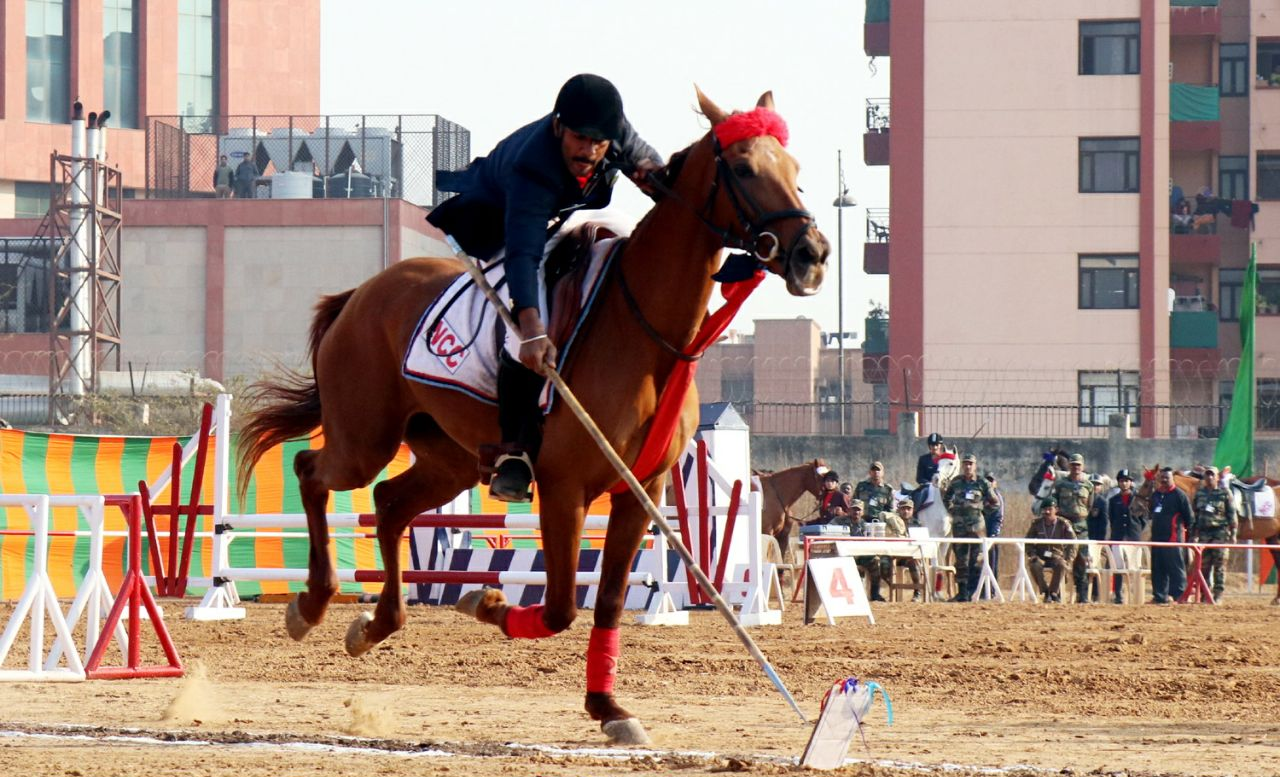College of Veterinary Science, Ludhiana
Know About the College
The College of Veterinary Science is a daughter institution of Veterinary School established in 1862 at Poona with one year course which was later upgraded as the first Veterinary College at Lahore in 1882. A part of the Lahore Veterinary College was shifted to Hisar in 1948 after partition. The College of Veterinary Science, Ludhiana was established in November 1969 on re-organization of the Punjab State and the formation of separate Haryana state at main campus of Punjab Agricultural University. The College was shifted to the Guru Angad Dev Veterinary and Animal Sciences University (GADVASU) Ludhiana in 2005. The College is a centre of regional, national and international excellence in research and learning in animal health and production. It caters to the needs of Punjab by carrying out teaching, research and extension education programmes pertaining to livestock production and health problems and has been instrumental in ushering in an era of ‘White Revolution’ in the State.
The college has highly competent and experienced faculty members who have made significant contributions in research on animal health and production and won various national and international awards. The college has implemented minimum Standards of Veterinary Education Degree Course (B.V.Sc. & A.H.) Regulations, 1993 of Veterinary Council of India and accordingly, external examination system has been introduced for B.V.Sc. & A.H. 5-year programme from the batch admitted in 1998 and onwards. The college is recognized by the Veterinary Council of India and has obtained accreditation from the Indian Council of Agricultural Research in the year 2004.
Initially, the College was established with the following six departments:
- Veterinary Anatomy & Histology (1969)
- Veterinary Bacteriology, Hygiene and Parasitology (1969)
- Veterinary Bacteriology & Virology (1969)
- Veterinary Pathology (1969)
- Veterinary Physiology (1969)
- Veterinary Pharmacology & Medicine
- Veterinary Pharmacology & Toxicology (1969)
- Veterinary Surgery & Gynaecology
- Veterinary Surgery & Radiology (1969)
New departments were started in the coming years, raising the number to twelve:
- Veterinary Clinics & Continuing Education (1988)
- Veterinary Gynaecology & Obstetrics (1976)
- Veterinary Immunology (1988)
- Veterinary Medicine (1975)
- Veterinary Parasitology (1975)
- Veterinary Public Health & Epidemiology (1988)
On implementation of VCI regolation as notified in extraordinary Gazette of India Part II, Section (3), sub-section (1) notification No.57 dated 7.2.94 from Academic session 1994-95 and onwards the number of departments was raised to 18 as detailed below:
- Department of Animal Breeding and Genetics
- Department of Animal Nutrition
- Department of Animal Reproduction, Gynaecology & Obstetrics
- Department of Livestock Production and Management
- Department of Vety. Anatomy and Histology
- Department of Vety. and Animal Husbandry Extension
- Department of Vety. Biochemistry
- Department of Vety. Clinical Medicine, Ethics and Jurisprudence
- Department of Vety. Clinical Services Complex
- Department of Epidemiology and Preventive Vety. Medicine
- Department of Vety. Microbiology
- Department of Vety. Parasitology
- Department of Vety. Pathology
- Department of Vety. Pharmacology and Toxicology
- Department of Vety. Physiology
- Department of Vety. Public Health
- Department of Vety. Surgery and Radiology
- Department of Livestock Product Technology
From academic session 2009-10 the university has implemented Veterinary Council of India- Minimum Standards of Veterinary Education for B.V.Sc. & A.H. Regolations, 2008 and the following departments were reorganized/ established:
- Veterinary Anatomy
- Veterinary Physiology and Biochemistry
- Veterinary Pharmacology and Toxicology
- Veterinary Parasitology
- Veterinary Microbiology
- Veterinary Pathology
- Veterinary Public Health and Epidemiology
- Animal Nutrition
- Animal Genetics and Breeding
- Livestock Production Management
- Livestock Products Technology
- Veterinary Gynaecology & Obstetrics
- Veterinary Surgery and Radiology
- Veterinary Medicine
- Veterinary and Animal Husbandry Extension Education
- Teaching Veterinary Clinical Complex
- Instructional Livestock Farm Complex
From academic session 2016-17 the university has implemented Veterinary Council of India- Minimum Standards of Veterinary Education - (Bachelor of Veterinary Science and Animal Husbandry - Degree Course) Regulations, 2016.
All these departments of the college have excellent laboratory facilities and adequate infrastructure for undergraduate and postgraduate teaching and research, a well-equipped veterinary teaching hospital to cater to the demands of large and small animal health care. In addition, the college also has an elite dairy herd and poultry farm which provide adequate facilities for teaching and research. This is the only veterinary college in India having three ICAR Centres of Advanced Studies in the Department of Veterinary Surgery & Radiology and Department of Veterinary Gynaecology and Obstetrics. The Department of Teaching Veterinary Clinical Complex and the Department of Livestock Production Management has experiential learning projects.
College of Veterinary Science offers (from 2016-17) the following programme of study:
- B.V.Sc. & A.H. Five and half year programme
The programme leading to the award of the B.V.Sc. & A.H. degree is designed to equip graduates with the knowledge and skills essential to a veterinary career. The programme is divided into three phases. The pre-clinical phase, undertaken in years one and two, provides education in basic sciences such as anatomy, physiology and biochemistry, as well as in animal husbandry through intramural learning. The para-clinical phase, undertaken in years three and four, includes bridging subjects between the pre-clinical and clinical phases, such as Pathology, Microbiology, Parasitology, Pharmacology and basic clinical science. The clinical phase (Surgery, Medicine and Gynaecology) starts in year four and culminates in the fifth and final year. At the end of course work the students undergo a compulsory rotating internship programme of envisaging on the job training in animal production, technology, diagnostic laboratories and hospital practice. The various departments of the College, aided by teaching veterinary hospital ensure both currency and relevance in basic and applied biological sciences through clinical practice.
Recent graduates have shown considerable satisfaction with the programme of study, as it prepared them for professional life and have developed confidence in their skills for clinical investigation and lifelong learning, in the context of general practice.
The successful completion of B.V.Sc.& A.H. programme entitles the graduates for registration with the Punjab State Veterinary Council / Veterinary Council of India as registered veterinary practitioners.
Mandate
- To help the society by providing adequate supply of trained Veterinary professionals capable of handling livestock health and production aspects including Master’s and Doctorate level specialists according to the needs of the State Government and allied agencies.
- To undertake research work in selected areas and wherever applicable following multi-disciplinary approach.
- To provide opportunities for continuing education for professionals in Veterinary Science.
- To provide consultancy and specialist services to livestock owners, government, semi-government and allied agencies
- To run “Referral” hospitals for specialized treatment of the referred livestock patients and also to provide clinical training to the students.
- To foster faculty development by providing them with opportunities to participate in appropriate training programmes, conferences, workshops, seminars, symposia etc. and avail other opportunities in exchange programmes.
- To encourage cooperation and collaboration with other departments, Colleges, Universities and Industries both nationally and international
Goals
- To produce Veterinary graduates, scientists and extension workers for promoting better livestock health by prevention of disease, increasing production and reproduction of livestock, thus improving the quality of rural life in Punjab.
Dean, College of Veterinary Science

Dr. Swaran Singh Randhawa
Address: Dean, College of Veterinary Science, Guru Angad Dev Veterinary and Animal Sciences University, Ludhiana
Email: deancovsldh@gadvasu.in
Call: +91-161-2414020
Brief Introduction :
Dr. Swaran Singh Randhawa, has joined as Dean, College of Veterinary Science, Guru Angad Dev Veterinary and Animal Sciences University, Ludhiana. Dr. Swaran Singh Randhawa is a devoted and industrious clinician,teacher as well as a researcher. He has an excellent scientific career,evidenced by his quality research and clinical papers. He has published more than 70 research papers in national and international journals. He has been honored with University Best Teacher Award for the year 2017-18. He did a pioneer work on ‘Bovine lameness’. For the first time in India, He evaluated sole thickness using ultrasonography in crossbred dairy cattle, which can be used as a selection criterion for breeding programs. He developed Hindi version of “Claw Health Atlas” for International Committee for Animal Recording (ICAR). He also standardized ‘Fast localized abdominal ultrasonography of horses’ (FLASH) for diagnosis in equine colic patients. Recently, he standardized transtracheal wash (TTW) and bronchoalveolar lavage (BAL) techniques for diagnosis in respiratory problems in equines. He also established endoscopy for diagnosis of upper respiratory tract (URT) diseases of equines at the university hospital. His research has been acclaimed nationally and internationally (Finland and New Zealand) with more than 70 presentations in conferences. Presently, He is part of DBT Canine Research Centre and working on the project ‘Elucidating the etiology of chronic gastro-enteropathies in dogs’. He guided 10 postgraduate students. He is currently supervising 2 M.V.Sc and 2 Ph.D student. Presently, he is Editor of Indian Journal of Veterinary Medicine and member of the National Academy of Veterinary Sciences (India).
Former Dean
| Sr. No. | Name | Duration on the post | Date of Retirement | Photograph |
|---|---|---|---|---|
| 1. | Dr. Ajit Singh | 21.05.1970 to 21.12.1973 | 30.11.1971 |  |
| 2. | Dr. Bakhsish Singh Gill | 21.09.1974 to 19.06.1983 | 30.09.1985 | 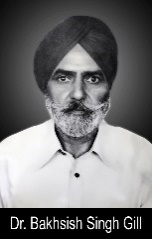 |
| 3. | Dr.Balbir Singh Paul | 20.06.1983 to 11.03.1985 | 31.08.1985 |  |
| 4. | Dr.Balwant Singh | 12.03.1985 to 15.11.1993 | 31.01.1999 | 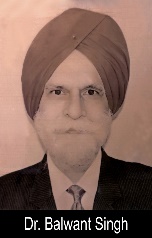 |
| 5. | Dr.Sohan Singh Rathore | 16.11.1993 to 31.12.1993 | 31.12.1993 | 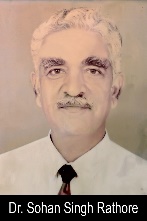 |
| 6. | Dr.Khusdev Kumar Baxi | 01.01.1994 to 31.12.1997 | 30.04.1998 | 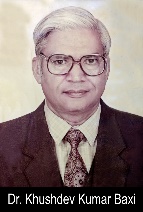 |
| 7. | Dr. Rajya Pal Saigal | 06.01.1998 to 17.01.1999 | 31.05.2003 | 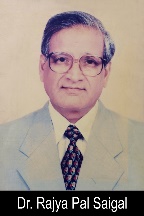 |
| 8. | Dr. Jugraj Singh Dhillon | 18.01.1999 to 30.06.2000 | 30.06.2000 | 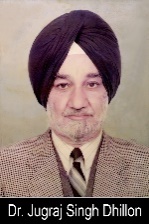 |
| 9. | Dr.Rajya Pal Singh | 01.07.2000 to 31.05.2003 | 31.05.2003 | 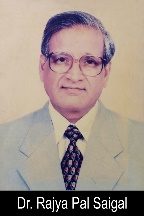 |
| 10. | Dr. Mohinder Singh Oberoi | 20.06.2003 to 17.07.2005 | 31.08.2006 | 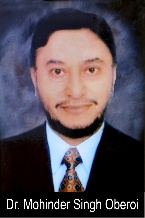 |
| 11. | Dr. Dev Raj Sharma |
18.07.2005 to 30.01.2006 24.04.2006 to 30.04.2006 |
30.04.2006 | 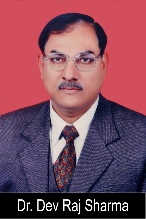 |
| 12. | Dr. Onkar Singh Parmar | 31.01.2006 to 23.04.2006 | 31.05.2008 | 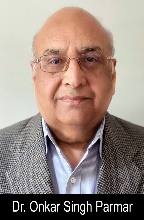 |
| 13. | Dr. Kirpa Shankar Roy | 01.05.2006 to 27.12.2006 | 31.12.2006 | 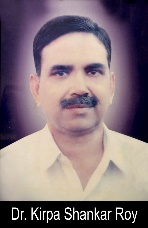 |
| 14. | Dr. Simrat Sagar Singh | 28.12.2006 to 10.05.2011 | 31.03.2018 | 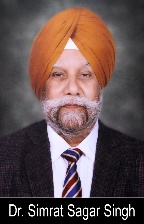 |
| 15. | Dr. Harpal Singh Sandhu | 11.05.2011 to 11.05.2016 | 30.11.2019 | 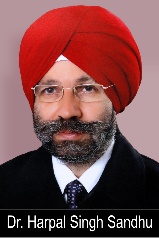 |
| 16. | Dr. Simrat Sagar Singh | 12.05.2016 to 27.09.2016 | 31.03.2018 | 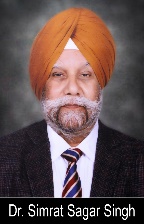 |
| 17. | Dr. Parkash Singh Brar | 27.09.2016 to 22.09.2020 | 31.01.2026 | 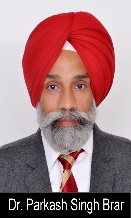 |
Facilities
- Main Veterinary College Building Complex
- Silver Jubilee Block
- Clinical diagnostic laboratory
- Semen process and Embryo transfer technology laboratory
- Animal Science Complex
- G S Sidhu Animal Nutrition Centre
- Small and Large animal Hospital/Clinic
- Six Lecture Halls with LCD facility
- UG/PG Laboratories
- Examination Hall –seating capacity of 200
- Computer Centre
- Auditorium
- R&V NCC Sqn.
- Experimental and Instructional Herds
- Post Mortem Hall
- Livestock Farms
- Poultry Farm
- Hostels for boys and girls


It was in the year 1984, 1 Punjab R & V Squadron NCC was made operational in the campus. The unit has its own riding school comprising of riding arena and facilities for equestrian activities like show jumping, Tent Pegging, Dressage etc. The Unit is commanded by a Regular Army Officer of the rank of Lt. Col and Above of Remount and Veterinary Corps (RVC) and Five other regular army personnel as supporting staff. These regular army personnel get posted out every two years and are replaced by new ones. As per Veterinary Council of India, Remount and Veterinary Corps NCC programme is compulsory for all undergraduate students of College of Veterinary Science. The students (except NRI/OCI/Foreign Nationals) admitted to B.V.Sc. & A.H. programme at College of Veterinary Science, Ludhiana have to register for compulsory R & V Sqn. NCC course each of 0+1 non-credit for the first three years (NCC I, II & III). They have to clear all the three NCC courses and attend at least one Annual Training Camp to complete their degree requirements. Every year three students who get trained in horse riding participate in Republic Day Camp (RDC) at New Delhi where they compete with the riders of 17 different directorates from all over India in different equestrian sports. The riders from the unit have won many laurels at RDC like Best Rider trophy, Best Tent Pegger, Sharma Trophy and various medals. Apart from RDC, the cadets are also made to compete in various horse shows which are conducted by National and State Equine Federations.
MOTTO OF NCC
- Unity and Discipline
AIMS OF NCC
- To Create a Human Resource of Organized, Trained and Motivated Youth, To Provide Leadership in all Walks of life and be Always Available for the Service of the Nation.
- To Provide a Suitable Environment to Motivate the Youth to Take Up a Career in the Armed Forces.
- To Develop Character, Comradeship, Discipline, Leadership, Secular Outlook, Spirit of Adventure, and Ideals of Selfless Service amongst the Youth of the Country.
CORE VALUES OF NCC
- A sense of patriotic commitment to encourage cadets to contribute to national development.
- Respect for diversities in religion, language, culture, ethnicity, life style and habitat to in still a sense of National unity and social cohesion.
- Abiding commitment to learn and adhere to the norms and values enshrined in the Indian Constitution.
- Understanding the value of a just and impartial exercise of authority.
- Ability to participate in community development and other social programme.
- A healthy life style free of substance abuse and other unhealthy practices.
- Sensitivity to the needs of poor and socially disadvantaged fellow citizens.
- Inculcating habits of restraint and self-awareness.
- Understanding the values of honesty, truthfulness, self-sacrifice, perseverance and hard work.
- Respect for knowledge, wisdom and the power of ideas.
Two Teachers from College of Veterinary Science are nominated as Associate NCC Officers (ANO). They undergo full Basic Military Training at RVC centre and College, Meerut.
| Sr. No. | Name & Designation | Department | Phone & Email |
|---|---|---|---|
| 1. | Capt. (Dr.) Nittin Dev Singh, ANO and Associate Professor |
Department of Veterinary Pathology, COVS, GADVASU, Ludhiana NCC Commission no.: NCC/12110181 |
9780852132 drndsingh@gmail.com |
| 2. | Capt. (Dr.) Prem Prakash Dubey, ANO and Scientist |
Department of Animal Genetics and Breeding & Directorate of Livestock Farms, COVS, GADVASU, Ludhiana. NCC Commission no.: NCC/12110303 |
9888802905 prakashagb@gmail.com |
ACTIVITIES OF CADETS OF 1 PB R &V SQUADRON NCC LUDHIANA
|
Cadet of 1 Pb R & V SQN NCC in action at Republic Day Camp |
Swachh Bharat Abhiyan |
Cadets doing awareness campaigns for general public regarding cleanliness |
|
Show Jumping |
Team of Riders with Medals at State Horse Show |
Swachh Bharat Abhiyan:Cleaning Public Places |
|
Educating public regarding waste management |
Best Marching Contingent at Athletic Meet of GADVASU |
Trick Jumping during Athletic Meet of GADVASU |
|
Pilot Cadets withADG NCC in the Unit Premises |
Cadets Escorting the Chief Guest for Athletic Meet |
Tree Plantation Drive |
Faculty Detail
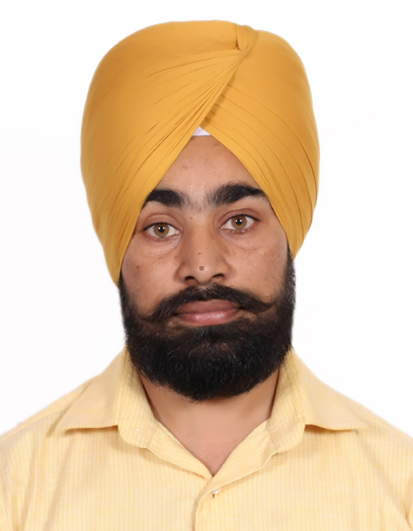
Dr. Jaswinder Singh
Designation : Professor
Contact Address : Directorate of Extension Education, College of Veterinary Science, Guru Angad Dev Veterinary & Animal Sciences University, Ludhiana, Punjab 141004
Telephone : 0161-2414005
Mobile : 9915007594
Email : jaswindervet97@gmail.com
Academic Credentials
- B.V.Sc & AH
- M.V.Sc Animal Nutrition
- Ph.D. in Animal Nutrition
Teaching appointments
- Veterinary & Animal Husbandry Extension Education Communiation and its role in veterinary science
- Type of farming
- Farm Journalism
- Adoption of Innovation
Other appointments
- Assistant Professor in Department of Animal Nutrition in Apollo College of Veterinary Medicine (ACVM), Jaipur- Rajasthan from 23 Aug, 2004 to 1 Jan 2007
Area of research
- Value chain analysis of Livestock farming,
- Occupational hazards in livestock sector
- Constraints analysis of livestock farming
Ongoing projects
|
S No |
Name Of The Project |
Involved As |
Sponsoring Agency |
Amount/ Year |
Status |
|
1 |
Exploring
The Gaps In Veterinary Education In India To Match The Graduate Skills With
Stakeholders Level” |
Principal Investigator |
ICAR,
New Delhi |
14.30
Lakh 2016-2017 |
Completed |
|
2 |
Integrated
Approaches For Livestock Development: Farmers Context |
COPI |
Farmer First Program,
Icar, New Delhi |
139.40
Lakh 2016-2021 |
Continue |
|
3 |
Sustainable Livestock Based Farming System For
Livestock Security In Hoshiarpur District Of Punjab |
Associated Scientist |
National
Agricultural Innovation Project (NAIP) ICAR,
New Delhi |
4.85
Crore 2008-2014 |
Completed |
|
4. |
Technology Assessment And Refinement- An
Institute Village Linkage Project |
CoPI |
GADVASU
Ludhiana |
2007-2011 |
Completed |
|
5. |
Subscribing
Animal Husbandry Monthly Magazine Namely “Vigiyanik Pashu Palan” Published By
GADVASU, Ludhiana To 850 Farmers Club
In Punjab State. |
Co PI |
NABARD |
4.7lakh |
Ongoing |
|
6. |
Toward
Climate Resilient Livestock Production System In Punjab” |
Co- Principal
Investigator |
Ministry
Of Environment, Forest and Climate Change, Govt Of India |
17.4
Crore 2016-2018
|
Completed |
|
7. |
Evaluation
Of Livestock Policies And Programme For The Management Of Animal Genetic
Resources In Haryana And Punjab States: |
Associated Scientist |
ICAR_ NBAGR Karnal |
NBAGR
Funded 2018
onward |
Completed |
|
8. |
Antibiotic
Resistance At Animal Human Interface Under Niche Area Of Excellence, |
Associated Scientist |
ICAR,
New Delhi |
334.05
lakh 2018-onward |
Completed. |
|
9. |
Capacity
Building of human resources in Livestock sector using augmented and virtual
reality |
Co-
Principal Investigator |
RKVY |
45
Lakh |
Completed |
Research honours awards
- 2017 Got "Budding Extensionist Award" in 2nd National Conference of Society for Veterinary and Animal Husbandry Extension (SVAHE) held at SKUAST-Jammu on 10-12 April 2017
- 2018 Best Extension Worker Award in first annual day of GADVASU from Worthy Vice Chancellor, GADVASU, Ludhiana on 23.2.2018.
- 2019 Best Teacher Award (Animal Science)- Award in second annual day of GADVASU from Worthy Vice Chancellor, GADVASU, Ludhiana in 2019
- 2021 Associate Fellow, National Academy of Dairy Sciences (India) for the year 2021
- 2022 Got Best Language (Punjabi) Film Award on Video “Zoonosis- Disease Between Animals and Human’ in MANAGE Agri Film Festival-2022 held on 11 March 2022 at National Institute of Agricultural Extension Management (MANAGE), Hyderabad, Telangana.
- 2022 National Young Scientist Award by Indian Society for Advancement of Canine Practice Indian Society for Advancement of Canine Practice given at XVIIIth Convention held on 22-24 Sep 2022 at Udaipur, Rajasthan.
- 2022 Best MVSc Thesis award to my master student " Harmandeep Singh ( I am his Major Advisor)at National conference of SVAHE held at Palampur 2022.
- 2023 Best Extension Worker Award-2022 by the Guru Angad Dev Veterinary & Animal Sciences University, Ludhiana
- 2023 First Best Research Paper Award to the article from the thesis of my MVSc student titled" Milk Quality and Safety issues inside the farm gate of dairy farmers of Punjab (India) Authored by H Singh, Jaswinder Singh, HK Verma, and SK Kansal published in Indian Journal of Dairy Science by Indian Dairy Association (IDA)
No of publications
|
Publication
- Chadda, A., Singh, J., Sharma, R. K., Gupta, R. K., & Kansal, S. K. (2024). Bottlenecks analysis using analytic hierarchy process (AHP) throughout the value chain of small ruminants in India. Small Ruminant Research, 230, 107169.
- J Taaffe, Rajneesh Sharma, Aravindh Babu R. P. Jaswinder Singh, P Kaur, BB Singh Jatinder P S Gill, Dhinkar Raj Gopal, N K Dhand and Falgunee K Parekh (2023) One Health activities to reinforce intersectoral coordination at local level in India. Frontier in Public Health 11:1041447.
- HK Tiwari, Vishal Proch, BB Singh, K Schemann, Michael Ward, Jaswinder Singh, JPS Gill and Navneet Dhand (2022) Brucellosis in India: comparing exposure amongst veterinarian, paraveterinarians and animal handlers. One Health 14(2022)-100367.
- Dhand, N. K., Singh, Jaswinder., Josan, H. S., Singh, B. B., Jaswal, N., Tiwari, H. K., Polychronis Kostoulas,M S Khatkar, RS Aulakh Manmeet Kaur & Gill, J. P. (2021). The feasibility and acceptability of various bovine brucellosis control strategies in India. Preventive Veterinary Medicine, 189, 105291
- doi: 10.3389/fpubh.2023.1041447.
- Akshita Chadda, YS Jadoun, Jaswinder Singh and SK Kansal (2021) Comparative analysis of beneficiaries and non beneficiaries about scientific livestock farming practices. Indian Journal of Animal Research (preprint) DOI: 10.18805/IJAR.B-44046.40.
- Jaswinder Singh, B B Singh, HK Tiwari, Harmandeep Singh Josan, Nidhi Jaswal, Manmeet Kaur, Polychronis Kostoulas, M S Khatkar, RS Aulakh, JPS Gill and Dhand N (2020) Using Dairy Value chains to identify production constraints and biosecurity risk. Animals (MDPI). 10: 2332.
- Vidya Nimbalkar, Verma HK, Singh Jaswinder and Kansal SK (2020) Awareness and adoption of Subclinical Mastitis diagnosis among dairy farmers of Punjab, India. Turkish Journal of Veterinary & Animal Science 44: 844-852.
- Jaswinder Singh, Paviter Kaur, Manjinder Sharma, N D Singh, Nitin Mehta, APS Sethi and SS Sikka (2019) Effect of combination of garlic powder with black pepper, cinnamon and aloe verapowder on the growth performance, blood profile, and meat sensory qualities of broiler chickens. The Indian journal of Animal Science, 89(12):1370-1376,December 2019.
- Jaswinder Singh, M Sharma, N. Mehta, ND Singh, Paviter Kaur, APS Sethi and SS Sikka (2018) Influence of Supplementation of black pepper powder through feed in broiler chickens on their growth performance, blood profile, meat sensory qualities and duodenum morphology. Indian Journal of Animal Science 88(2): 215-221
- Jaswinder Singh, Manjinder Sharma, ND Singh Paviter Kaur, APS Sethi and SS Sikka (2017) Effect of sun dried whole bulb garlic powder on nutrient utilization, blood parameters, duodenum morphology and faecal microbial load in broiler chickens. Indian Journal of Animal Science.87 (2): 195–198

